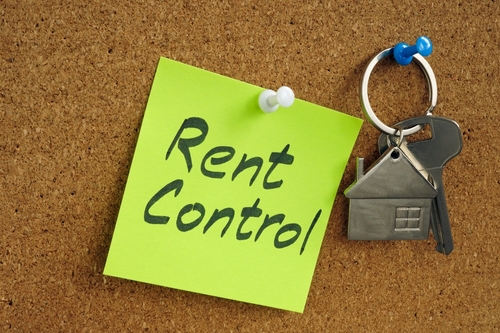
Propertymark has given details of how it believes the Scottish Government rent control system has backfired and works against the interests of the rental sector.
The Scottish Parliament last month agreed to another six month extension to rent controls, taking them up to March 2024.
This means that most in-tenancy private rent increases would continue to be capped at 3.0 per cent and, alternatively, private landlords could apply for increases of up to 6.0 per cent to help cover specific increases in costs in a specified period where these costs can be evidenced.
Evictions will also be banned for a further six months for most tenants, except in several specified circumstances: increased damages for unlawful evictions of up to 36 months’ worth of rent would continue to be applicable.
The Scottish Government housing minister - Green politician Patrick Harvie - says that over the period from 2018 to 2020, 63 per cent of social rented households and 40 per cent of private rented households did not have enough savings to cover even a month of income at the poverty line, compared to 24 per cent of households buying with a mortgage and nine per cent of households owning outright.
“Consequently, rented sector households entered the cost of living crisis in a more vulnerable position than owner-occupiers” he told the Scottish Parliament in a written statement.
However, Propertymark says this policy may have backfired, and in any case works against the interests of the rental sector,.
It says 50 per cent of its agents in Scotland report rents increasing month-on-month on average at their branch in April 2023, while the number of properties available to rent per member branch remained stubbornly low at nine in May.
This is 12 per cent lower than in May 2022 when we saw the market starting to significantly overheat.
“Ultimately, the pressure of rising costs faced by landlords, higher demand for properties than the number made available, and a cap on rents in Scotland have combined to raise costs for tenants” explains Propertymark in a formal consultation response to the Scottish Government.
It continues: “According to the property portal Zoopla, in April 2023, rent in London was 13.5 per cent higher than a year ago, in Scotland it was 13.1 per cent higher, and the Northwest of England saw a 10.5 per cent increase. This amplifies Propertymark’s member feedback that landlords in Scotland are increasing rents between tenancies to cover their costs and anticipated costs due to a fear of ongoing rent control legislation.”














%20-%20IMAGE%20Client%20Accounting%20%E2%80%93%20what%20are%20your%20options.jpg)

%20(002).png)
.png)
.png)

%20(002).jpg)







Join the conversation
Jump to latest comment and add your reply
People who own a property can deal with the "cost of living crisis" better... so f*ck em.
How about the Scottish Government provides the housing themselves... oh wait, they're too incompetent to even do that. The PRS is the PRIVATE rented sector, not social housing.
Couldn’t agree more. It’s so important the legal challenge goes our way. Decision expected soon I’m told.
Mm this is rather a brash comment. Most landlords do not own their rental property/s or their own home outright and usually mortgaged up to their eye balls. Therefore they are under the same pressure, if not more. Therefore a comment like this only puts the backs up more of a Landlord thus encouraging them to leave the broken PRS, causing a greater divide in supply and demand and in turn increasing the rents to the tenants.
Please login to comment